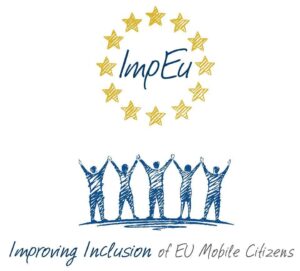Home>News>ECAS Highlight of the Week: The bigger the scope of citizen rights is, the stronger the democracy is. What can the EU do?

 Freedom of movement is not so free when European citizenship legislation is not implemented correctly. The challenges that EU citizens face as a result can cause them time, money, and nerves.
Freedom of movement is not so free when European citizenship legislation is not implemented correctly. The challenges that EU citizens face as a result can cause them time, money, and nerves.
There are a number of factors at play, but there is one that takes a leading role. While EU citizenship rights are granted by the 1992 Maastricht Treaty, upholding them is often in the hands of the public administrations in the different Member States. Overwhelming evidence suggests that many of the obstacles faced by citizens when claiming their EU rights are due to the incorrect implementation of the relevant legislation on a national level.
The observed tendencies over the years by Your Europe Advice (YEA) – a free online EU advice service provided by ECAS legal experts, operating under contract with the European Commission – testify to the growing magnitude of this problem. In 2019, the service saw a 46% increase from the previous year in citizen enquiries, related to freedom of movement obstacles they are faced with (for a total of 28,034 handled enquiries that year). From social security uncertainties to not being able to claim their pension, YEA experts have also noted that these problems often arise due to national authorities’ lack of knowledge of EU citizenship legislation.
It is simple – the bigger the scope of citizen rights is, the stronger the democracy is. While the EU prides itself as one of the leaders in this aspect, it also does not hide the fact that it is in crisis. European decision-makers and the public have been reiterating the call to strengthen and ‘restart’ European democracy. But no efforts can be truly effective if the above is not addressed. Public administrations in Member States must ensure the uniformed implementation of EU citizenship rights.
It is therefore why ECAS is calling on the European Commission and Member States to provide adequate and continuous training to public administrations on EU citizenship legislation. This call is part of a set of eight recommendations to stakeholders, which we believe will bring us closer to a ‘citizen-centric European Union’. Each one is based on our expertise and extensive research done within the framework of various projects and will be accompanied by a video explaining the background and reason for its inclusion.
To support our call for public administration training, this week we have released the video illustrating why this is desperately needed (problem –>reason–>solution):
ECAS has an extensive track record in helping EU citizens in exercising their right to free movement and in-depth knowledge of the problems associated with its implementation. In addition to the Your Europe Advice service, here is what else ECAS is currently doing to address this challenge:
 Improving Inclusion of EU Mobile Citizens (IMPEU) project
Improving Inclusion of EU Mobile Citizens (IMPEU) project
 The Civic Observatory on the Rights of EU Citizens (CORE) project
The Civic Observatory on the Rights of EU Citizens (CORE) project
"*" indicates required fields
ПВ рамките на информационната кампания по фонд „Партньорство“ по проект „ПАКТ“ предстои провеждането на серия от уебинари, насочени към представяне на насоките за кандидатстване, както и към задълбочаване на ключови […]
През месец май фонд „Партньорство“, част от проект „ПАКТ“, беше представен пред представители на граждански организации и читалища в Пловдив, Плевен и София. В трите града срещнахме активни, вдъхновени участници, […]
През изминалата седмица в Велико Търново, Варна и Бургас се проведоха първите информационни дни по фонд „Партньорство“, част от проект „ПАКТ“. В рамките на инициативата над 70 представители на граждански […]

